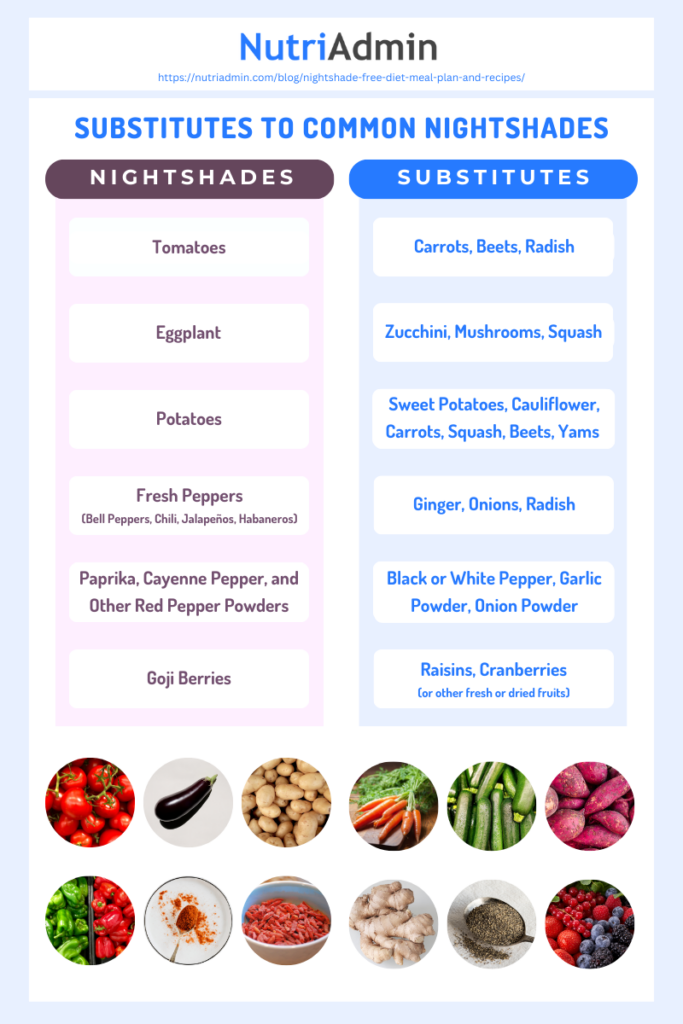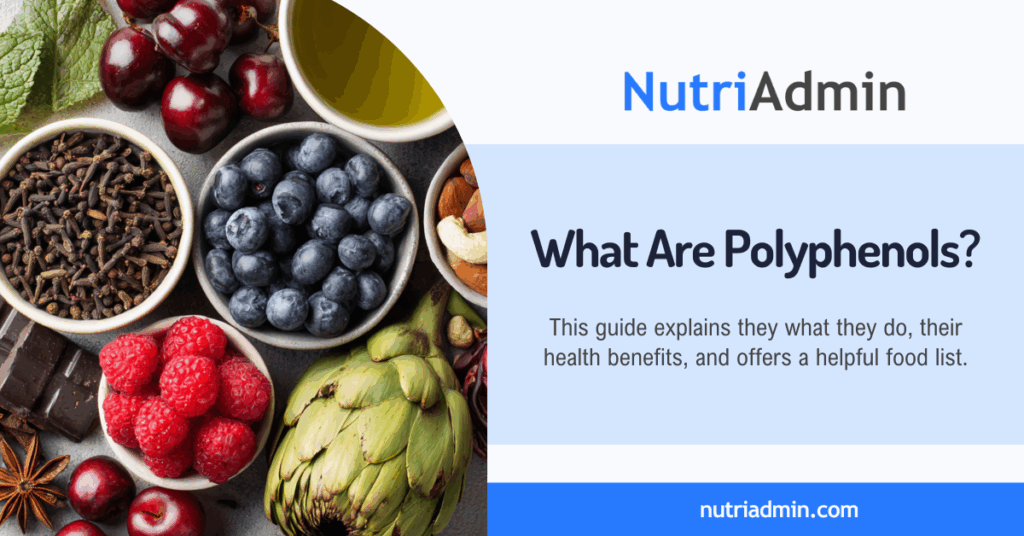You may have come across articles or posts about nightshades on health and wellness websites or social media platforms. Some diet groups link nightshades, such as tomatoes, peppers, and eggplants, to supposed negative effects on health. This leads to the question: Are there scientifically proven negative impacts of consuming nightshades, or is it just a matter of individual sensitivity?
In this article, we will discuss what nightshades are, explain why people avoid them, and determine whether it is necessary to exclude them from your diet. We will also explore nightshade-free diets and provide food lists, sample meal plans, and recipes.
What are nightshades?
Nightshades, scientifically known as Solanaceae, are a family of about 2,300 flowering plants. Although the term nightshade is often associated with poisonous plants, it also includes a wide variety of common nutritious vegetables that you may have in your pantry. Some examples of common nightshades are tomatoes, eggplants, chili peppers, potatoes, and Goji berries.
Why do some people avoid nightshades?
Nightshades contain natural compounds, such as alkaloids (e.g., solanine) and glycoalkaloids, which can cause adverse reactions when consumed in large amounts. These compounds can lead to various symptoms, including digestive issues, joint pain, and skin problems.
There are claims that nightshades may contribute to inflammation in people with arthritis and autoimmune diseases. Additionally, some individuals may have intolerance or allergies to nightshade foods, although this is rare.
While nightshade foods are commonly consumed, limited research exists on their potential adverse effects on some individuals. Individual reactions to nightshade foods can vary, and more research is needed to fully understand their potential impact on health.
Symptoms of Nightshade Allergy
- Rashes
- Nausea
- Diarrhea
- Dizziness
- Headaches
- Fatigue
- Arthritis
- Stiff and Aching Muscles
Should you avoid nightshades?
Nightshade vegetables are packed with nutrients and can be a valuable addition to your diet. If you don’t experience any adverse reactions when consuming nightshades, there’s no need to eliminate them from your meals.
- Tomatoes contain various nutrients, antioxidants, and bioactive compounds that help support different body functions. They are a great source of lycopene, a carotenoid known to act as an antioxidant and protect against cardiovascular diseases and cancer.
- Potatoes are an excellent source of carbohydrates and fiber. They also provide a significant amount of vitamin C and potassium.
- Eggplants are a great source of various vitamins, such as vitamin C and vitamin K. They also contain minerals like potassium, manganese, and folate. In addition, eggplants are rich in dietary fiber, antioxidants, and phytochemicals like chlorogenic acid, which have been associated with numerous health benefits.
Nightshade Free Diet
Individuals with nightshade allergy or intolerance may consider following a nightshade-free diet. This involves excluding all nightshade plants and their derivatives to minimize the risk of adverse reactions.
Although nightshades may be excluded from the diet, they can be replaced with other types of foods.

Nightshade Elimination Diet
An elimination diet, which involves removing certain foods from your diet for a period of time and then reintroducing them, can be a helpful tool for identifying sensitivity or intolerance to nightshades.
You can follow the general steps below:
- Start by familiarizing yourself with the list of nightshade foods and their substitutes.
- Remove all nightshade foods from your diet for a period of time, typically 2-4 weeks.
- Be diligent about reading food labels to ensure that you are not consuming any hidden nightshade ingredients.
- Keep a food diary to track your meals and any symptoms or changes in how you feel.
- After the elimination period, slowly reintroduce nightshade foods one at a time and observe how your body reacts. Note any symptoms or reactions.
- Based on your observations, determine if you have a sensitivity to nightshade foods and adjust your diet accordingly.
Before making any significant changes to your diet, it is best to consult with a healthcare professional or a registered dietitian. This is especially important if you have concerns about food allergies or sensitivities. A healthcare professional can help in assessing whether you are allergic or sensitive to nightshades. Additionally, a dietitian can provide personalized guidance and ensure that any dietary changes are safe and appropriate for your individual needs.
Creating Nightshade-Free Diet Meal Plans for Clients
If you provide meal plans to your clients as part of your nutrition or fitness business, you may need to create high-quality customized meal plans quickly. This way, it will not consume the time you need to allocate for other important tasks in your business.
When creating meal plans for clients, it’s important to take into account every client’s unique dietary requirements, food preferences, and any health concerns they may have. Using professional meal planning software like NutriAdmin can help streamline this process.
The sample meal plan below was created using NutriAdmin’s meal plan generator. It also includes nightshade-free recipes, automatic nutritional analysis, and a shopping list.
NutriAdmin allows nutrition professionals to create meal plans using data from their clients’ nutritional assessment forms and food preference questionnaires.
It allows you to set parameters such as daily energy and macros needs and meal types and choose from over 40 diets. You can also exclude ingredients that your client doesn’t like or is allergic to, choose cuisines that you prefer, and more.
This feature can help you create personalized meal plans tailored to each client’s needs in just 60 seconds!
Nightshade Free Recipes
Looking for nightshade-free recipes to recommend to your clients? NutriAdmin also offers a database of nutritionist-vetted recipes.
You can use the recipe database search feature to supplement your own recipes or create a meal plan from scratch. It can also be shared as individual recipes, which can be used as a marketing tool, such as lead magnets.
Summary
Nightshades are a family of flowering plants that include common vegetables like tomatoes, eggplants, chili peppers, and potatoes. While nutritious, some people avoid nightshades due to their content of natural compounds like alkaloids and glycoalkaloids, which may cause adverse reactions in large amounts. There are claims that nightshades might contribute to inflammation in certain individuals, particularly those with arthritis or autoimmune diseases.
A nightshade-free diet involves eliminating all nightshade plants and their derivatives. This diet may benefit those with nightshade allergies or intolerances who might experience digestive issues, joint pain, or skin problems. However, for most people, nightshades are safe and nutritious to consume.
It’s important to note that while some individuals may benefit from a nightshade-free diet, most people can safely enjoy nightshade vegetables as part of a healthy, balanced diet. Always consult with a healthcare professional before making significant dietary changes.




